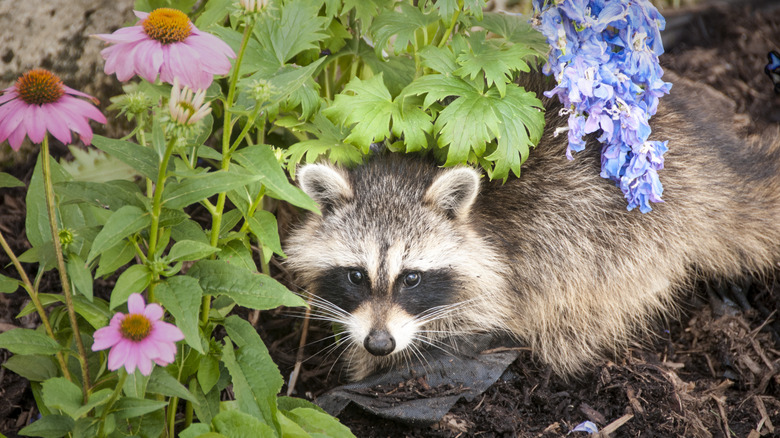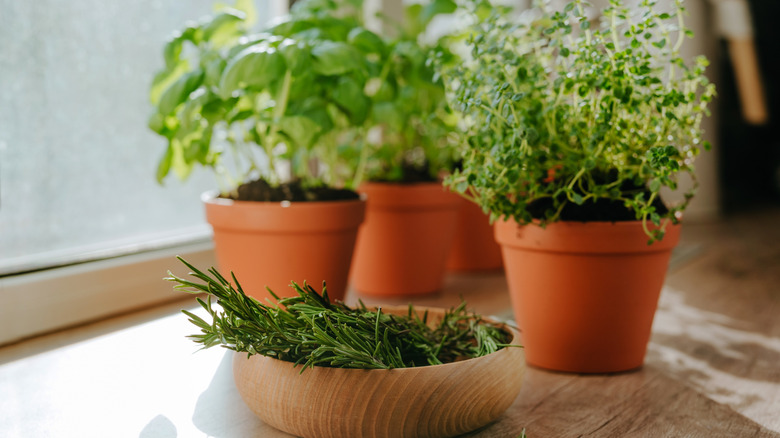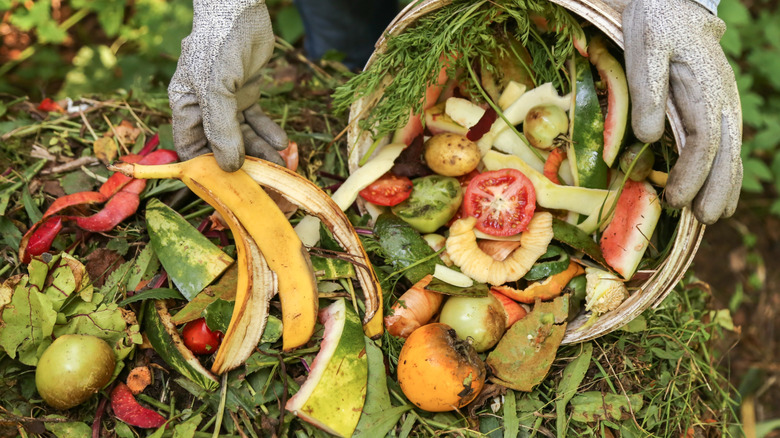The Key To Keeping Animals Out Of Your Compost Lies In Your Garden
Compost piles can often become delicious-looking buffets for raccoons, rodents, and other curious animals. This can be incredibly frustrating when you're trying to maintain a nutrient-rich pile for your soil. The solution to this constant problem may lie in some specific plants that deter animals with sensitive noses. Unlike fencing or chemical repellents that can mess with your composting process, strategically planted herbs offer a low-maintenance defense system that adds to your garden's natural beauty. This method targets the animals' sensitive sense of smell, making your compost much less appealing to wandering critters.
The most effective herbs for creating a protective barrier around your compost are ones that emit strong essential oils. Mint varieties like peppermint or spearmint are some of the best herbs to repel squirrels and other rodents. Rosemary's pine-like scent can help discourage larger pests like deer or raccoons. A lavender fragrance will bother both raccoons and rodents, all while attracting beneficial pollinators to your garden. These plants work best when placed in containers or garden beds surrounding your compost area. This smell barrier will become more effective over time because as the plants grow and mature, their scent gets stronger.
The best plants for protecting your compost
Several different herbs would fit well as a scent barrier when planted near your compost bins. Alliums, including chives and garlic, emit a sulfur-like compound that helps repel burrowing animals and insects while being completely safe for the compost itself. Lemon balm and citronella grass can create a citrus barrier that deters insects and some rodents, with the added benefit of a pleasant smell around your garden. Thyme planted around the base of your compost bin will release a pest-repelling oil when disturbed by movement. For the best results, combine tall herbs with low-growing plants to cover the most area possible.
The placement of these plants is an important thing to consider when setting up your plan. Use taller herbs like sage and bay laurel around the outer area of the compost and shorter mints or thymes closer to the bins. This will create a multi-step barrier that should help deter most pests. Planting in pots with the best type of soil for herbs will offer more flexibility and allow you to move plants when needed to cover open areas. This also helps prevent any of the more invasive herb varieties from trying to take over completely. The best part is that these plants not only safeguard your compost but also provide fresh herbs to use in your kitchen, making the whole process more practical.
What not to do when protecting compost from animals
While herb barriers can effectively deter pests, certain things can inadvertently attract more animals to your compost. Meat and dairy should always be avoided in composting systems, as their smells will overpower helpful herbs planted around. Overwatering compost creates a soggy environment in which slugs and insects thrive. These smaller creatures eventually attract larger ones, and the cycle begins again. When creating your compost, try not to keep it too close to fences or tree lines, which make easy access for animals.
Timing matters as well; pruning herbs in early spring, when pests are known to flourish more, stimulates new growth and stronger scent production when it's needed the most. Avoid any chemical fertilizers on your plants, as synthetic odors can quickly overpower the herb's natural smell and diminish the production of the herb's prest-repellant oil. In the end, using a combination of herb scent barriers and avoiding outdoor compost mistakes that might attract pests will help keep your bins pest-free and churning out quality fertilizer throughout the seasons.


